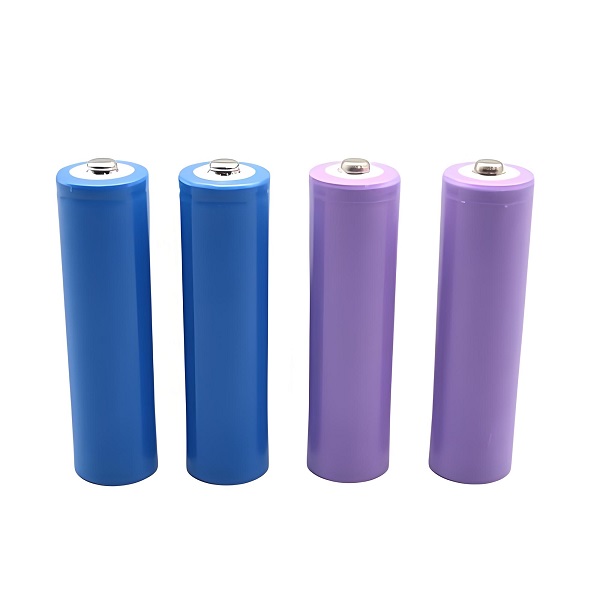As an indispensable energy source in modern life, lithium batteries are widely used in mobile phones, laptops, electric vehicles, energy storage systems and other fields. However, facing the dazzling array of lithium battery products on the market, how to choose a battery that suits your needs? This article will provide you with a comprehensive guide to buying lithium batteries to help you make a wise choice.

1. Clarify the purpose
Before buying a lithium battery, you must first clarify the purpose of the battery. Different application scenarios have different requirements for batteries:
- Consumer electronics (such as mobile phones, laptops): require lithium batteries with moderate capacity, small size and light weight.
- Power tools (such as electric drills and electric saws): require high discharge rate and durable batteries.
- Electric vehicles: require high energy density and long life power batteries.
- Energy storage systems (such as solar energy storage): require batteries with long cycle life and high safety.
2. Key parameters
When buying lithium batteries, you need to pay attention to the following key parameters:
- Capacity (Ah/mAh)
The capacity determines the battery's endurance. The larger the capacity, the longer the battery lasts. For example, the battery capacity of a mobile phone is usually between 2000mAh and 5000mAh, while the battery capacity of an electric car may reach tens or even hundreds of Ah. - Voltage (V)
Make sure the voltage of the battery matches the device. The common voltage of lithium batteries is 3.7V (single cell), and multiple cells can reach 12V, 24V or even higher after being connected in series. - Discharge rate (C-rate)
The discharge rate indicates the discharge capacity of the battery. High discharge rate batteries are suitable for high-power devices such as power tools and electric vehicles. - Cycle life
Cycle life refers to the number of times a battery can be charged and discharged. The cycle life of a high-quality lithium battery is usually between 500-2000 times. - Energy density
The higher the energy density, the more energy the battery can store in the same volume or weight. High energy density batteries are more suitable for portable devices.
3. Battery Type
Depending on the cathode material, lithium batteries are mainly divided into the following types:
- Lithium-ion battery (Li-ion)
The most common type of lithium battery, with high energy density and moderate price, is widely used in consumer electronics and electric vehicles. - Lithium iron phosphate battery (LiFePO4)
High safety, long life, suitable for energy storage systems and electric vehicles, but low energy density. - Polymer lithium battery (LiPo)
Small size, flexible shape, suitable for small devices such as drones and wearable devices. - Solid-state battery
Emerging technology, higher safety, higher energy density, but not yet commercialized on a large scale.
4. Brand and quality
Choosing a well-known brand of lithium battery is an important step to ensure quality and safety. Here are some well-known lithium battery brands in the world:
- CATL: The world's leading power battery manufacturer.
- Panasonic: Tesla's main battery supplier.
- LG Energy Solution: Focuses on electric vehicles and energy storage batteries.
- BYD: China's leading battery and electric vehicle manufacturer.
- BENZO Energy: Best quality lithium battery supplier.
In addition, when purchasing, you need to check whether the battery has passed relevant certifications, such as CE, RoHS, UN38.3, etc.
5. Safety
The safety of lithium batteries is crucial. The following are safety matters that need to be paid attention to when purchasing:
- Protection circuit
Make sure the battery has a protection circuit to prevent overcharging, over-discharging, short circuit and other problems. - Temperature control
Choose a battery with temperature control function to avoid danger caused by overheating. - Appearance inspection
Avoid buying batteries with damaged or bulging appearance.
6. Price and cost performance
The price of lithium batteries varies greatly, but low prices often mean low quality. When purchasing, you should pay attention to:
- Don't just pursue low prices, inferior batteries may have safety hazards.
- Compare the cost performance of different brands and models, and comprehensively consider capacity, life and price.
7. After-sales service
Choose a brand that provides comprehensive after-sales service to ensure that problems encountered during use can be solved in time. Common after-sales services include:
- Warranty service (usually 6 months to 2 years).
- Return and exchange policy.
8. Purchase channels
- Official channels
Purchase through the brand's official website or authorized dealers to ensure authenticity. - E-commerce platform
Choose a reputable merchant to check user reviews and sales. - Offline stores
You can check the appearance and quality of the battery on site.
9. Precautions
- Compatibility
Make sure the battery size and interface match the device. - Usage environment
Choose a suitable battery according to environmental conditions such as temperature and humidity. - Environmental protection
Give priority to batteries made of recyclable or environmentally friendly materials.
Conclusion
When purchasing lithium batteries, be sure to consider capacity, voltage, type, brand, safety and other factors according to your own needs. Through the above guide, I believe you can find a suitable lithium battery to provide long-lasting and stable power support for your device.



